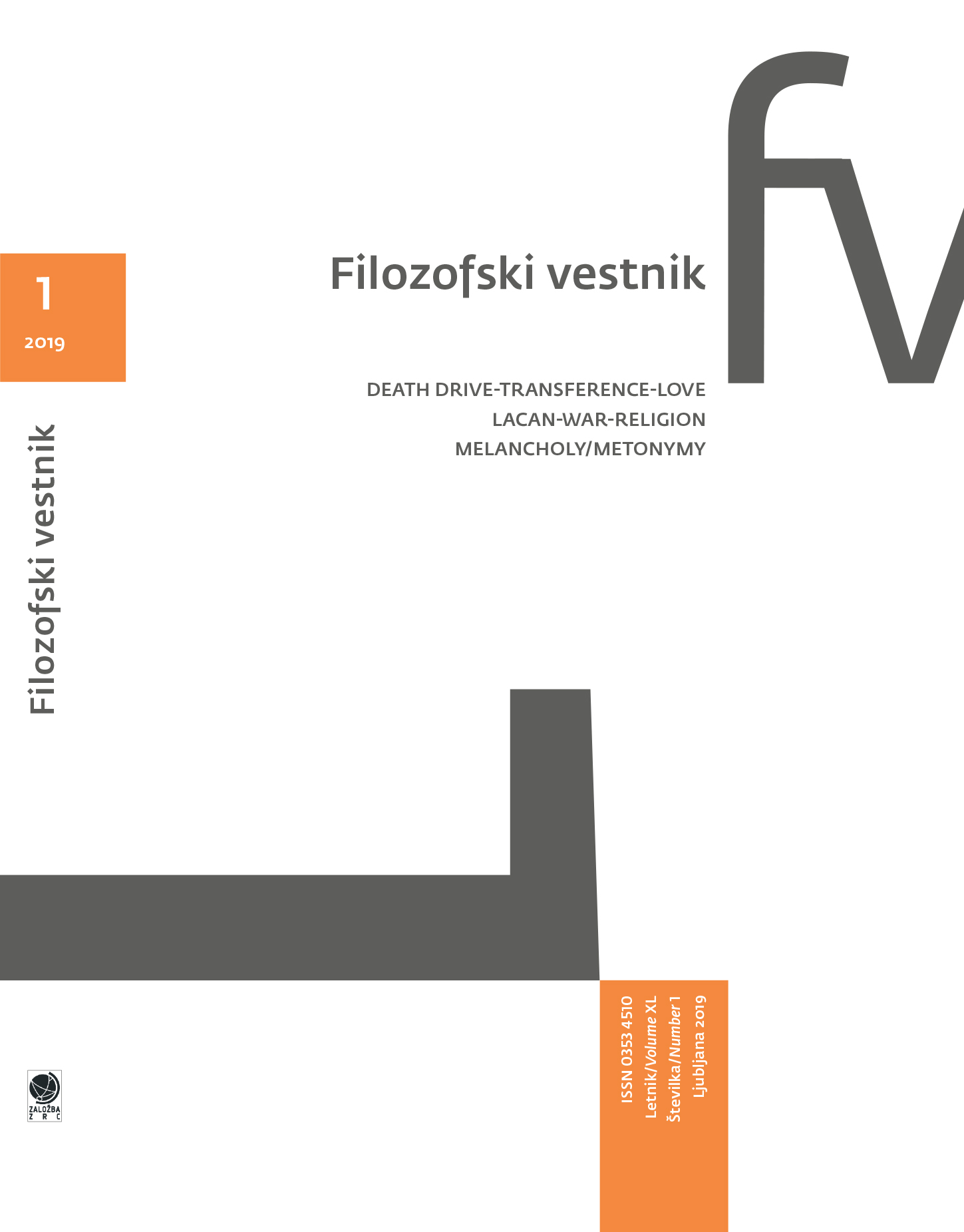Lacan’s War Games: Cybernetics, Sovereignty and War in Seminar II
Keywords:
Lacan, cybernetics, Schmitt, Koyré, Schuhl, KojèveAbstract
This essay offers a new reading of Lacan’s materialist definition of consciousness in Seminar II: The Ego in Freud’s Theory and in the Technique of Psychoanalysis 1954-5 which interprets it as a work of political, or even military, theory. To summarize the argument, I seek to position Lacan’s thought experiment seminar within the historical context not only of the emergence of post-war cybernetic theory but within the longer history of the philosophy of the “machine” that stretches from Descartes and Hobbes up to contemporary philosophers like Koyré, Schuhl and Kojève. If the machine metaphor has a long history within philosophical anthropology – where it is variously used to solve the problem of free will, consciousness and so on – I argue that it is also an enduring political trope which has, from the beginning, been deployed to describe the relationship between sovereignty and government, rule and exception and even war and peace. In conclusion, I argue that Lacan’s thought experiment does not merely dramatize the phenomenological supersession of the sovereign ego by the “machine” of consciousness, but the political overthrow of the premodern sovereign person by the “machine” of the modern juridical, political – and even military – order.
Downloads
Downloads
Published
How to Cite
Issue
Section
License
Authors guarantee that the work is their own original creation and does not infringe any statutory or common-law copyright or any proprietary right of any third party. In case of claims by third parties, authors commit their self to defend the interests of the publisher, and shall cover any potential costs.
More in: Submission chapter





